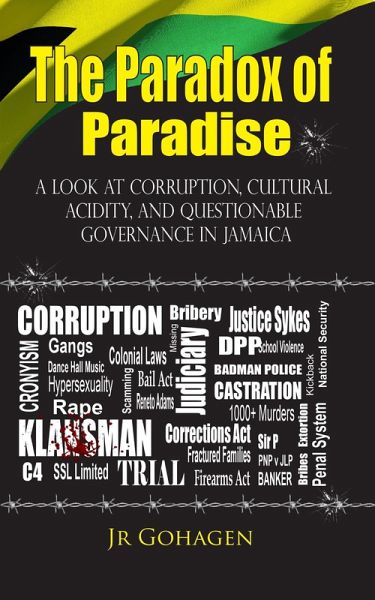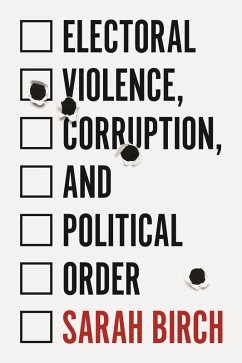
The Paradox of Paradise: A Look At Corruption, Cultural Acidity, And Questionable Governance In Jamaica (eBook, ePUB)

PAYBACK Punkte
0 °P sammeln!
Jamaica stands at a critical juncture. The next 30 years will determine whether the island becomes a failed state akin to our Haitian neighbour, or we alter course and re-emerge as part of a civil society. Despite consistently ranking amongst the highest murder rates in Latin America and the Caribbean, with an average of 48 per 100,000 inhabitants, Jamaica has experienced noticeable economic growth and substantial infrastructure development over the past decade. However, it's crucial to note that economic success means little if Jamaicans don't feel safe in their homes. The purpose of this boo...
Jamaica stands at a critical juncture. The next 30 years will determine whether the island becomes a failed state akin to our Haitian neighbour, or we alter course and re-emerge as part of a civil society. Despite consistently ranking amongst the highest murder rates in Latin America and the Caribbean, with an average of 48 per 100,000 inhabitants, Jamaica has experienced noticeable economic growth and substantial infrastructure development over the past decade. However, it's crucial to note that economic success means little if Jamaicans don't feel safe in their homes. The purpose of this book is to highlight issues hindering Jamaica from realizing its full potential. These include systemic corruption, antiquated colonial laws, the proliferation of gangs, and the breakdown of the traditional Jamaican family. These problems, along with others, have contributed to the emergence of a corrosive subculture. Despite outward appearances of economic prosperity to casual observers, many of our legal and financial institutions remain weak. Recent events, such as the scandal at Stocks and Securities Limited (SSL) and the outcome of the Klansman gang trial, exemplify these vulnerabilities. Corruption continues to thrive within the ranks of the Jamaica Constabulary Force, with little political will to address the issue. At this juncture, solving Jamaica's problems does not necessitate divine intervention, as Peter Bunting suggested a few years ago. Instead, what we need is disciplined leadership with a consistent and firm action plan. How about Mia Mottley or Paul Kagame for prime minister? Just a thought.
Dieser Download kann aus rechtlichen Gründen nur mit Rechnungsadresse in A, B, CY, CZ, D, DK, EW, E, FIN, F, GR, H, IRL, I, LT, L, LR, M, NL, PL, P, R, S, SLO, SK ausgeliefert werden.













